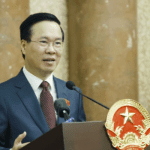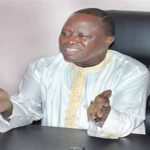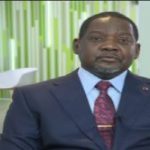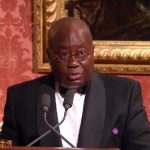Vietnamese President Vo Van Thuong has resigned after a little over a year in the position, the Communist Party said Wednesday.
This makes him the latest senior official to leave office after likely being implicated in an intense anti-corruption campaign.
The party said it had accepted his resignation, writing in a statement that “violations by Vo Van Thuong have left a bad mark on the reputation of the Communist party.
Thuong is the second president to resign in two years, something analysts called a worrying sign for political stability in a country that plays a key role in the middle of U.S.-China competition and a growing one in global manufacturing.
Thuong, 54, became president in March 2023, two months after his predecessor Nguyen Xuan Phuc resigned to take “political responsibility” for corruption scandals during the pandemic. He was the youngest president since modern day Vietnam emerged from war in the mid-1970s.
The position of president in Vietnam is largely ceremonial and ranks third in the country’s political hierarchy. The most powerful position is that of Communist Party general secretary, a post held since 2011 by Nguyen Phu Trong, who is 79.
Truong’s “violations” had “negatively affected public perception, as well as the reputation of the Party and the state. Being aware of his responsibilities before the Party, the state and the people, Thuong has sent his resignation from his positions,” a party statement reported by state media VN Express International said.
The announcement precedes a meeting in Hanoi of Vietnam’s parliament scheduled for Thursday, when it is likely to approve the party’s decision to accept the resignation. It is unlikely that a permanent replacement would be elected very soon, Giang added.
It wasn’t clear what the exact nature of the violations was but Thuong’s resignation took place days after the former head of Central Vietnam’s Quang Ngai province was arrested on allegations of corruption while Thuong was party chief in the province. The former head was part of an investigation into a real estate firm for alleged forgery.
The anti-corruption drive, described by Trong as a “blazing furnace,” has helped cement the top leader’s authority, but Giang said that factions in the party have also sought to use it to purge rivals.
Vietnam has tried to strike a balance between its larger neighbor China and the U.S. while positioning itself as an ideal home for businesses looking to shift their supply chains out of China. Last year it was the only country that received both American President Joe Biden and China’s Xi Jinping on state visits.
The campaign has also meant a significant rise in the power of both state and party enforcement agencies.
Rumors of a potential political change flared after a state visit to Vietnam by the Dutch royal family was postponed due to “due to domestic circumstances,” according to a statement from the Dutch Royal house.
The World Bank president likewise put off a visit planned for this week.














